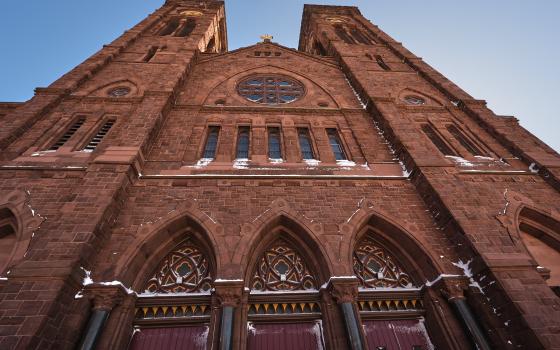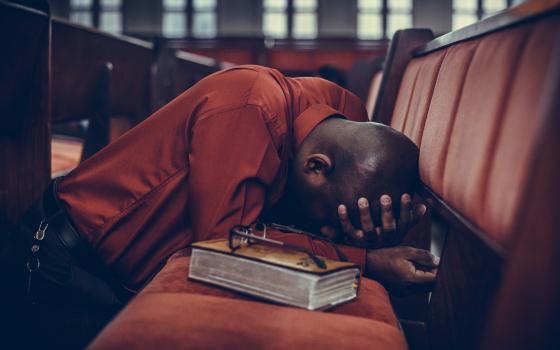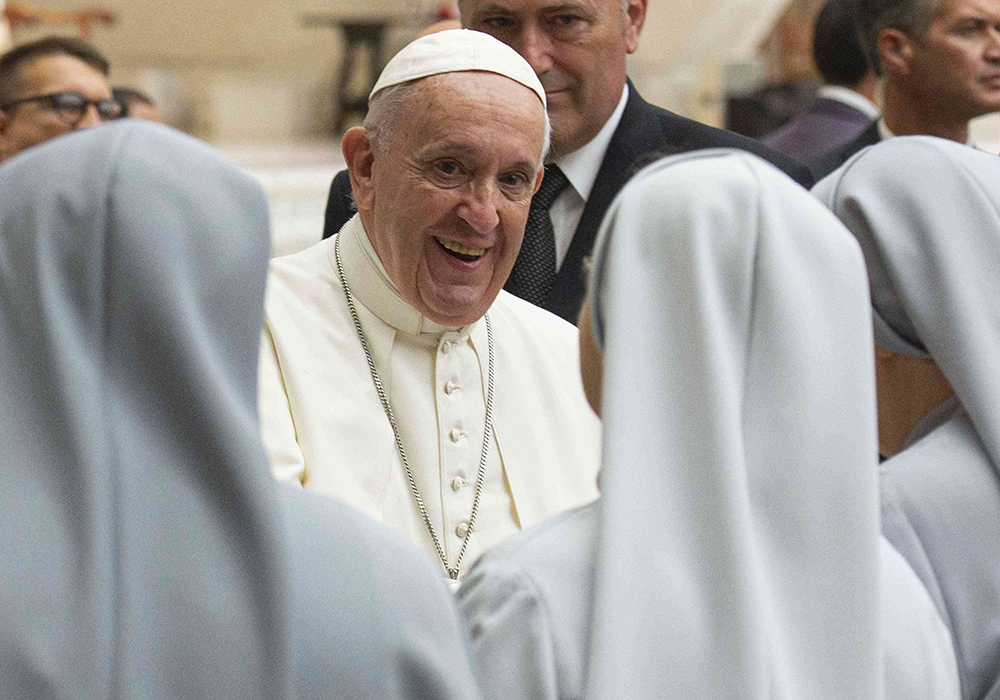
Pope Francis greets a group of nuns as he arrives for his general audience in Paul VI hall at the Vatican Aug. 21, 2019. Sister panelists for The Life discussed how the synodal process affected them, and shared their hopes for the synod. (CNS/Vatican Media)
The Synod of Bishops on synodality just completed the first of two major assemblies. The synodal process has the potential to impact the entire church, including women religious. For the final question to this panel, Global Sisters Report asked: How has the synodal process affected you, your parish, or your community? What hopes do you have for the synod?
Responses have been edited for clarity. We will debut a new crop of panelists later this month.
______
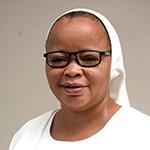
Gifty Atampoka Abane is a member of the Society of the Holy Child Jesus from Ghana. She is a teacher in a Catholic girls' high school in Ghana and serves their province in leadership.
The synodal process awakens in me a new consciousness of a journey in which the perfect, the imperfect, the seekers, the prophets, the weak and frail, the strong, the wise and foolish, the patient and enlightened, young people, older people, and children are united on a mission towards the Father's home.
The synod has ignited in me an intentional and conscious practice of being, listening, acting and meaningful dialogue. This change in mindset recognizes that each and every individual is an integral component of the family of God, each offering his or her very presence, gifts, and skills in service of the church in ways suitable to one's capabilities. It is a time to discard all forms of distinctions, segregation, discrimination, and exclusion based on limited human categorization of people, and instead, view all members of the same family, each gifted differently, with equal opportunities to serve.
The Holy Spirit could not have stirred the heart of Pope Francis at a more urgent time, considering the division, intolerance, indifference, exclusion, and inequality in our world. Since the onset of the synod, there has been a profound conversion experience across various groups in my community, deeply impacting our core values and ideals in religious life, a witness of the Catholic Church in glory. The synod has called for an overhauling of the systems of operation within the church and her structures, while preserving the rich traditions and cultures that have stood the test of time. There is a great sense of hope that the conclusion of the general gathering of the synod delegates will yield abundant fruits.
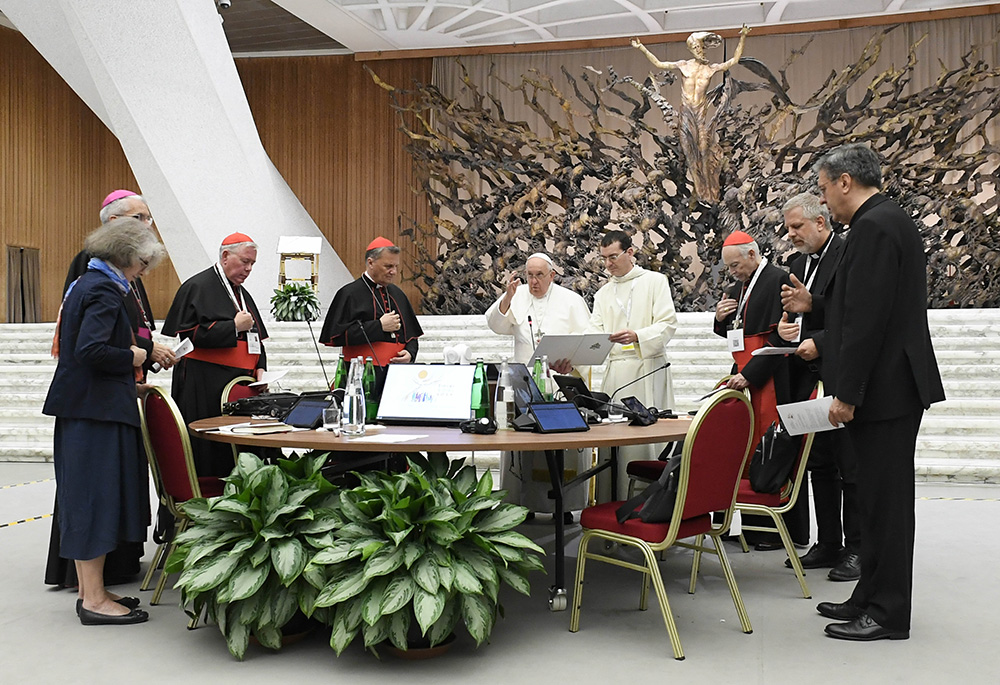
Pope Francis gives his blessing at the conclusion of the assembly of the Synod of Bishops' last working session Oct. 28, 2023, in the Paul VI Hall at the Vatican. (CNS/Vatican Media)
In understanding the signs of our time in my community, the synod calls us to listen wisely to one another, to learn through dialogue, and share our faith experiences with each other, the church and the world at large. In the spirit of synodality, each individual is called to deepen her responsibility as a full member of the family of God through our call to religious life, within the local church and ministry. This period of synodal conversation challenges us to creatively express our fidelity to Christ and his church, and to build solidarity with others, appreciating diversity and walking as fellow pilgrims.
It is evident that the synod aims to foster synergy and bring new insights into our way of life as a church, beginning from the individual levels and extending to all faith communities, parishes and dioceses. This marks the advent of a new era in the church that knows no boundaries, kindling an inherent need to embrace Gospel values and qualities, infusing a zest that is essential in all spheres of our lives.

Lydia Lerato Rankoti is a member of the congregation of Sisters of the Holy Names of Jesus and Mary from Lesotho Province. She is a temporary professed sister who joined right after high school in 2020. She worked at Paki Health Center in Mazenod, Lesotho, as a bookkeeper. She currently works at Maryland High School as the bursar.
In March 2022, I had only been two months and few weeks out of the novitiate house, serving my mission year of novitiate, when the synodal process actually started in Lesotho. Vatican II decrees were one of the topics taught during my time in the novitiate. Therefore, I thought "synod" was a way of preparing us for Vatican III, as its purpose is described as resolving questions of discipline or administration, providing for the good of the universal church. It has three goals: namely communion, participation, and mission.
According to Cardinal Jean-Claude Hollerich, the relator general of the Synod of Bishops, the work at the synod followed "the method of conversation in the Spirit." As he explained, "One of the strengths of the method of conversation in the Spirit is that it allows the expression of everyone's point of view, enhancing consonances without neglecting differences, but above all discouraging polarizations and polemics. … In this way it fosters the passage from listening to one another to listening to the Spirit."
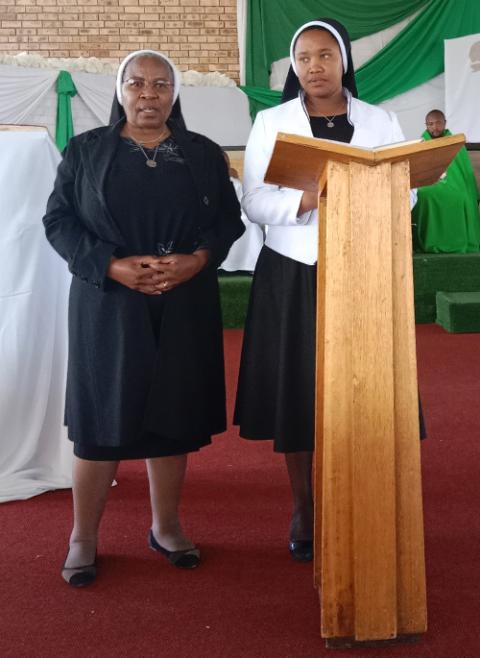
Sr. Mamokotjo Mokoteli, left, and Sr. Lydia Lerato Rankoti instruct parishioners on the Laudato Si' Movement and synodality for environmental care at St. Paul Church, Oct. 1 in Butha Buthe, Lesotho. (Courtesy of Lydia Lerato Rankoti)
As a young and new member in religious life, I found my congregation preparing itself for the 35th General Chapter, which took place in 2021 with the theme "The Call of Our Lives." This theme resonates well with the synod. For that reason, participating in the synodal process was a holistic experience which called on us to engage not only our intellectual abilities, but also our innate, emotional, spiritual and physical ones as well. Having lived in different communities, parishes, dioceses, and districts in Lesotho, allowed me to learn extensively about the synod which was quite confusing to some people. However, it not only opened my mind and gave me courage to want to learn more about the church, but also made me know my worth and importance as a young religious in the church.
It goes without saying that laypeople were also affected by the synodal process. We were all taught about the synod and its meaning, and they were included in this process as well. I recall that surveys were distributed to them, according to their age, gender and profession. Some people were authentic enough to write their outlooks, while others were still hesitant to speak out, feeling they may be betraying the church by raising their voices.
I am inspired by Pope Francis' words during his meeting with the Union of Superiors General in November 2013:
Religious Life ought to promote growth in the church by the way of attraction. The church must be attractive. Wake up the world! Be witnesses of a different way of doing things, of acting, of living! … It is this witness that I expect of you. Religious should be men and women who are able to wake the world up.
I am hopeful that this process will lead to a more inclusive church, where diverse voices and perspectives are both heard and valued.
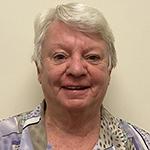
Nuala Patricia Kenny is a native New Yorker and a Sister of Charity of Halifax, Nova Scotia, Canada. She is a physician, pediatrician and bioethicist, who practices, teaches and works at several hospitals in Canada. She has received many honors for her work in child health, medical education and health policy. Past president of both the Canadian Pediatric Society and the Canadian Bioethics Society, she was chair of the Values Committee of the 1997 Prime Minister of Canada's National Forum on Health. She has authored numerous papers and several books.
The unprecedented 2023 session of the Synod of Bishops on synodality has concluded. I was captured by the images of clergy, religious and lay participants sitting together at tables in ordinary attire in sharp contrast to the usual synod photos of rows of formally garbed clerics waiting to receive a definitive proclamation or to speak.
I recalled my experience as a Sister of Charity of Halifax, Nova Scotia, when we embraced the Vatican II call in Perfectae Caritatis (1965) to renew mission, governance, and work in light of the changing needs of society. In chapters of renewal, we adopted small table groups and deep listening with a focus on the pain and suffering in the world. Our years of learning to deal with sometimes acrimonious differences are recognized in the synod's 2023 synthesis report as "practices of synodal life and discernment that have been tried and tested in communities of consecrated life, maturing over the centuries."
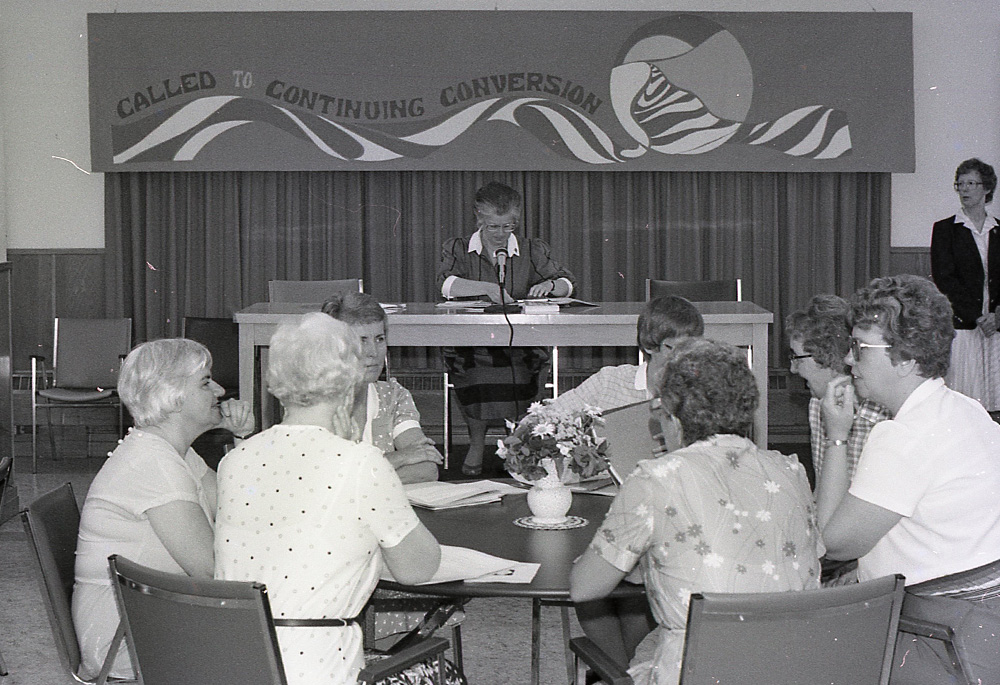
Sisters of Charity of Halifax are pictured at a table during their 15th General Chapter in 1984. (Sisters of Charity of Halifax Archives)
Despite unrealistic expectations, open defiance, and disregard of the process by some, the 41-page final report describes an experience of harmony at the Vatican assembly in October. The chapters of renewal identify convergences, issues in need of study and practical proposals regarding synodality, discipleship, and mission, along with challenges ahead.
Synodal practices are acknowledged from the New Testament and the early church. They are rooted in the dignity of baptism, co-responsibility for evangelization, and the "Trinitarian dynamism with which God comes to meet humanity," as the report states. "This is why communion, which springs from the Eucharist and is celebrated in it, configures and directs the paths of synodality," it adds. Recognizing that "one obstacle to ministry and mission is clericalism," the report fails to require mandatory diocesan advisory councils.
The report states, "The Church needs to listen with special attention and sensitivity to the voices of victims and survivors of sexual, spiritual, economic, institutional, power and conscience abuse by clergy members or persons with Church appointments," but is disappointing in its lack of practical response to the tragic harms of the ongoing clergy sexual abuse crisis and need for independent reviews.
Advertisement
The statement "There is a need to ensure that liturgical texts and Church documents are more attentive to the use of language that takes into equal consideration both men and women" is important, but there is a more urgent need for consistency in the just treatment of women as baptized members.
The environment, migrants, refugees, the poor and Indigenous peoples are rightly given priority, but inclusion does not extend to the LGBTQ community.
My congregation works with the International Union of Superiors General, the Leadership Conference of Women Religious, the Canadian Religious Conference and others as we contribute to conversion of minds and hearts. Religious, working with their parish, diocesan and ministry groups, must facilitate synodal experiences at all levels, ages and cultures and formation in faith and discernment.
Words must turn into action through the power of the Holy Spirit. There is no turning back.
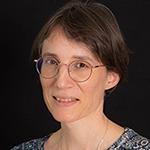
Véronique Rouquet is a member of the Ignatian congregation La Xavière Missionnaire du Christ Jésus and lives in Creteil, near Paris. Born in Lourdes, she rediscovered the "Message of Lourdes" when she worked for the Cité Saint-Pierre (part of the Caritas network that welcomes pilgrims in need from all over the world). She made her final vows with the Xavière Sisters in 2020. She is an English teacher, working with teenagers aged 11 to 14. She has managed the community communication office for a year and the website for three years.
The first session of the synod has just ended. I liked the fact that it started just as the Season of Creation was over. Indeed, acknowledging the Earth as our common home makes us more aware of our closeness to each other. And this is what the synod is about: getting to know our neighbors better. Those we meet every day, those we know via the media, those we take the bus with, and those we see on the street. How else can we come to know them better than by taking the time to sit next to them and start a respectful and genuine conversation?
As the communications manager of the Xavière Sisters, I recently received an email from someone who was deeply disturbed by the synodal process, particularly by the method of spiritual conversations. She argued it was intended to manipulate people. However, her 10-line-long message was the development of a thought she wanted to express, and that was great! This is precisely the starting point of the spiritual conversations: to express what one holds in one’s heart and to be listened to by someone. That is not all however. To allow the conversation a chance to bring us closer together, we must be willing to accept the other person's perspective and lend an attentive ear to what is being expressed beyond the difficulties they may have in expressing themselves.
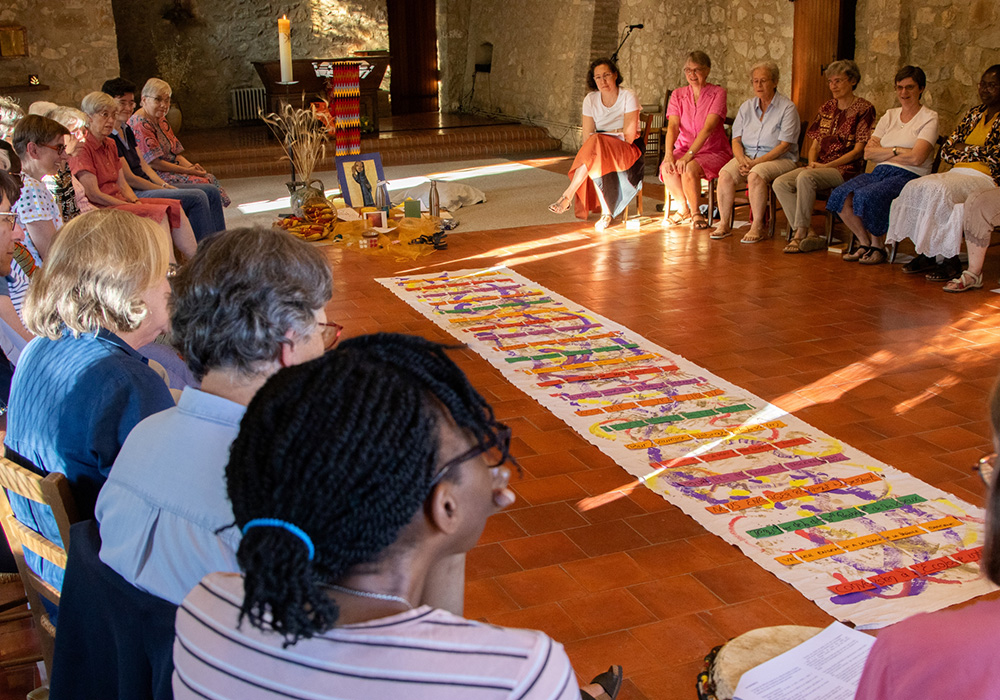
Sisters are gathered at La Pourraque, a house in the French countryside, during the General Chapter of La Xavière Missionnaire du Christ Jésus in July 2023. Sr. Veronique Rouquet says that the preparation for the general chapter was conceived as a synodal process. (Courtesy of Veronique Rouquet)
The first time I experienced a spiritual conversation was during our community encounters in the summer of 2015. I don’t remember the subjects we dealt with, but I vividly remember the experience. I remember trying to be attentive to what I felt as others spoke and the silence we were encouraged to hold, to allow each person to complete their thoughts. I also remember the security I felt as I also had the space to fully express my own thoughts.
Last year, the whole preparation of our General Chapter (which was held in July) was conceived as a synodal process. From November to April, we gathered several times — in different kinds of assemblies — and used the method of spiritual conversation to discern the topics we wanted the chapter to reflect upon. It was amazing to see how all the groups ended up with the same priorities. Above all, I keep in my heart the peace that the process fostered for each of us: Everyone was heard, and not only those with public speaking skills. It was a significant experience for everyone in the community; we experienced how the Holy Spirit, God himself, made his voice heard thanks to our conversations rooted in prayer.
I hope that everyone, in and out of the church, may one day experience the joy that stems from a genuine experience of communion as we seek God's will together. My hope for the synod is that more and more people can experience this joy of seeking God together, and that those who are generally considered voiceless be at last listened to and may feel at home in the church!

Maria Elena Gonzalez Galvan was born in Mexico City, where she studied interior design and social work. She entered the Congregation of the Religious of the Incarnate Word at the age of 24 and when she was newly professed was sent on mission to Kenya among the Pökot tribe. She worked in missionary animation and with young people in community apostolic works. She has done graduate studies in theology and later obtained the Diploma of Expert in Religious Life. She is currently pursuing a master's degree in missiology at the Intercontinental University in Mexico City.
It's undeniable that this October, we're witnessing global events that are capturing the world's attention, causing concern, uncertainty, and distress. The ongoing wars are weighing heavily on all of us, particularly as we learn about the suffering that many of our fellow brothers and sisters are enduring.
In addition, we find ourselves in the fourth stage of the process of synodality initiated in 2021, where communities worldwide have been participating in various ways. Naturally, the synodal fathers and mothers have not been disconnected from what's happening, along with other issues of global concern, such as the increasing migration, climate change, institutionalized violence, and more.
But right from the start of the synodal assembly, there have been encouraging signs that indicate the Spirit is once again guiding the church, bringing about remarkable developments. As with any ecclesiastical gathering, there are always voices wanting to express what hasn't been said, and there's a significant concern that the church might deviate from its centuries-old mission. Among these voices, the concern about the participation of women in all communities continues to be a topic of discussion.
Personally, I've been struck by the fact that most of the assemblies are held in the Paul VI Hall, where participants are seated at roundtables, seemingly emphasizing equality in dignity and participation in the assembly. Every day, we hear reflections from laypeople and consecrated women, and I dare say that their contributions have been highly relevant and on point.
In my journey, I can confidently declare that I feel like a woman who has a significant role within the church. From the wealth of my feminine identity, I have a lot to contribute, much like the women in various communities who have been doing so since the inception of this journey, breathing life into local churches.
I can see this not only in the religious community but also in my pastoral work in the northern region of Argentina. Women bear significant responsibility and exhibit creativity in sustaining community life. From small groups to participation in the Diocese of Catamarca, women are carrying out educational, missionary, health, and spiritual life projects.
There's been discussion about the possibility of women being ordained as deacons, which may happen in the future. That may be at some point, however, at present, I don't see any sisters or laywomen eagerly awaiting the ministry to serve. There's plenty of room for women to make maternal, fraternal, and service contributions, and we do so tirelessly. We're all moving forward together in synodality.





